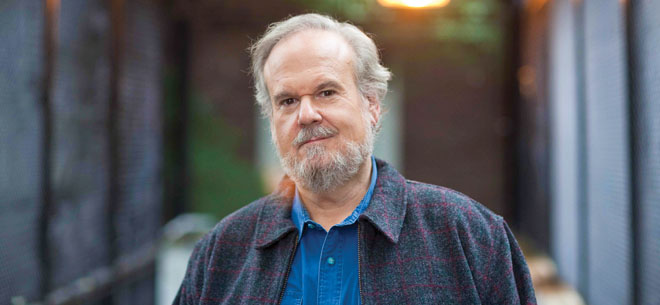
“Of all the music I heard growing up in the 1950s and ’60s, folk music always felt the most real to me,” says Scott Alarik, one of the most prolific folk music writers in the country. “It seemed to be about the way we really live our lives, the things we really care about.” As a folksinger, Alarik performed regularly on “A Prairie Home Companion,” and in legendary coffeehouse venues around the country. As a writer, he covered the folk scene for The Boston Globe and contributed to national magazines like Sing Out and Billboard. Folk music, also known as “roots,” spans decades and generations, up to the contemporary folk revival. As Alarik says, “The music strongly connects to what it used to be, when it was the self-made soundtrack of the lives of ordinary people.”
September is Revival Month in Harvard Square, an annual celebration of renewal and tradition named for Alarik’s award-winning folk music novel, Revival. Set in Cambridge within the modern folk world, the story centers around two songwriters who meet at an open-mic and fall in love through their shared passion for music. “It’s a love story within a love story,” he elaborates. “There’s a larger love story about folk music in the 21st century, how it stays alive and what feeds it.”
This year is the fourth embrace of Revival Month. All month long, Cambridge is alive and well with the sounds of grassroots songs and melodic voices. “Folk music exists in a constant state of revival,” he says. “There are always new people discovering it and putting their own stamp on it.” Entertaining events like the annual Revels RiverSing attract a chorus of thousands to the banks of the Charles River; and the second annual Harvard Square Folk Festival, where Alarik will be telling stories from Revival, is back for an encore.
Looking to catch a live folk show this month? “Club Passim is the premier showcase club for folk music in the Greater Boston area,” Alarik says. Known as Club 47 when it opened in 1958, it has a legacy as the launching pad for the ’60s folk revival, hosting artists including Joan Baez, Bob Dylan and Tom Rush. And surrounding the city, you’ll find a storied network of showrooms. “No other place in the world has this number,” Alarik says. “They’re real community venues.” At bostoncoffeehouses.org, you can find nearly 60 locations dedicated to supporting folk and acoustic music. “Tradition is another word for community,” Alarik states. “Through folk music, we find out that community can exist with people who lived before us. That’s a really powerful thing.”


